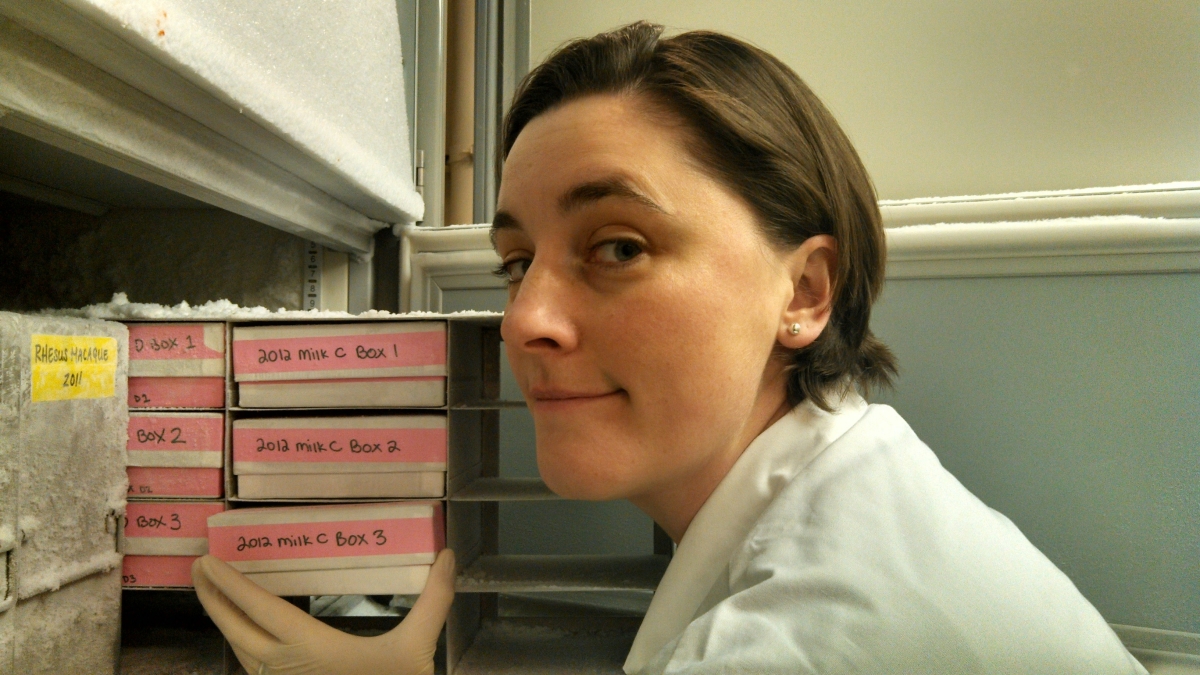ASU anthropologist heralded for exploring the science and social justice of mother’s milk

ASU anthropologist Katie Hinde analyzes milk samples from across the globe, enhancing “precision nourishment” for the most fragile infants and children in neonatal and pediatric intensive-care units. Photo by Cary Allen-Blevins
Arizona State University anthropologist Katie Hinde sees milk as more than food. For her, it is also personalized medicine and a carrier of information that affects immunity, brain function and metabolism in lasting ways.
Hinde was named to this year’s Grist 50 — a list of innovative individuals whose work points toward a better, more sustainable world — by Grist magazine.
“For a long time, we really took mother’s milk for granted,” Hinde said. “You can buy milk at the store. It just seems like a food item. That’s allowed this amazingly complex, fascinating adaptation — lactation — to hide in plain sight.
“Our nation does not mandate paid maternity leave, depriving many mothers from achieving their breastfeeding goals. This is a public health issue not only for infant health and well-being, but for maternal health and well-being. At the same time, for the babies who don’t have access to mother’s milk, there needs to be better artificial alternatives that reflect the state of the science.
“Some of the greatest global challenges — disease, childhood mortality and population growth — can be addressed, in part, through empowering women in their educational, economic and reproductive decisions,” she added. “Breast milk research is an integral aspect of this mission.”
Hinde, an associate professor in the School of Human Evolution and Social Change in the College of Liberal Arts and Sciences and a member of the Center for Evolution & Medicine, is currently analyzing milk samples from across the globe. Insights from different places and diverse people allows us to “decode” mother’s milk. Such research will enhance “precision nourishment” for the most fragile infants and children in neonatal and pediatric intensive-care units.
Hinde’s work is not only being heralded by scientists but is also heavily followed on social media, including her popular blog Mammals Suck… Milk!, which translates her and colleagues’ work into engaging and relatable posts.
More Health and medicine

PhD student builds bridges with construction industry to prevent heat-related illnesses
It is no secret that Arizona State University has innovative researchers working to help solve everyday problems.According to a…

Working to cure cancer in our lifetime
What if we could cure cancer, or come close, in our lifetime?That’s a goal that researchers at Arizona State University’s…

10 companies, 5 nations, 1 accelerator: A wide range of innovative health care solutions
The 10 companies participating in the 2025 Mayo Clinic and ASU MedTech Accelerator program hail from five different nations and…

